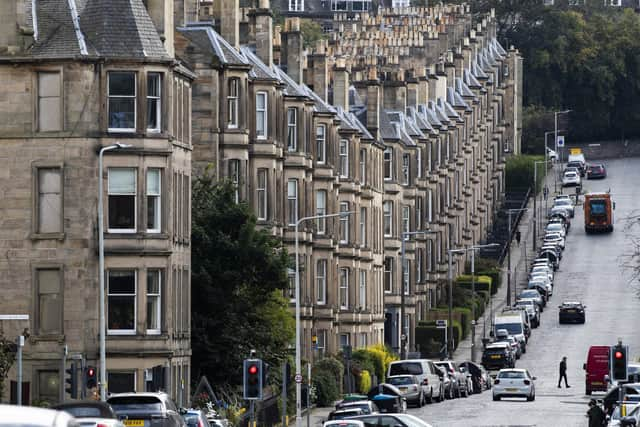Government mortgage charter: Average two-year fixed mortgage rates in UK surges to highest level in 15 years
The average two-year fixed-rate homeowner mortgage rate has surpassed the levels seen in the aftermath of last autumn's mini-budget, reaching its highest level in 15 years.
The typical two-year fixed-rate residential mortgage on the market reached 6.66 per cent on Tuesday, up from 6.63 per cent on Monday, Moneyfactscompare.co.uk said.
Advertisement
Hide AdAdvertisement
Hide AdThe last time two-year rates were higher was in August 2008.


On October 20 last year, the average two-year fixed-rate mortgage hit a peak of 6.65 per cent, amid the market volatility which followed September's mini-budget.
The average five-year fixed-rate homeowner mortgage also peaked at 6.51 per cent on that date, according to Moneyfactscompare.co.uk.
Mortgage rates later settled down, but then started to rise once more amid expectations that interest rates will be higher for longer as the Bank of England tries to subdue stubbornly high inflation.
Average two and five-year fixed-rate mortgages recently jumped back over the 6 per cent mark.


The Bank of England uses base rate rises as a tool to try to subdue inflation and the base rate is sitting at 5 per cent, following 13 rises in a row.
In further signs of the pressures on inflation, new figures showed wages have increased at a record rate.
The Office for National Statistics (ONS) revealed on Tuesday that average regular pay, not including bonuses, was 7.3 per cent higher in the three months to May compared with the same period last year.
Advertisement
Hide AdAdvertisement
Hide AdMoneyfacts' figures also show the average five-year residential mortgage on Tuesday was 6.17 per cent. The website took the full range of mortgage deposit sizes into account.
Around 2.4 million fixed-rate mortgages are due to end between now and the end of 2024, according to figures from trade association UK Finance.
Chancellor Jeremy Hunt recently held a summit with mortgage lenders and a new mortgage charter was agreed to support those who are struggling.
Lenders will be able to offer borrowers a switch to interest-only payments for six months, and an extension to their mortgage term to reduce their monthly payments, with the option to switch back within six months. Both options can now be offered without an affordability check.
A borrower will not be forced to leave their home without their consent unless in exceptional circumstances, in less than a year from their first missed payment.
The Financial Conduct Authority (FCA) has moved quickly to make rulebook changes.
Asked what was the point of the mortgage charter, Andrew Asaam, homes director at Lloyds Banking Group, told the Treasury Committee: “I think it provides consumers and customers with clarity around what’s out there – and consistency. So, different lenders have had different approaches.”
He added: “Inflation is still high so there’s still the ongoing squeeze for customers and consumers. So I think it’s a helpful intervention as things progress.”
Comments
Want to join the conversation? Please or to comment on this article.